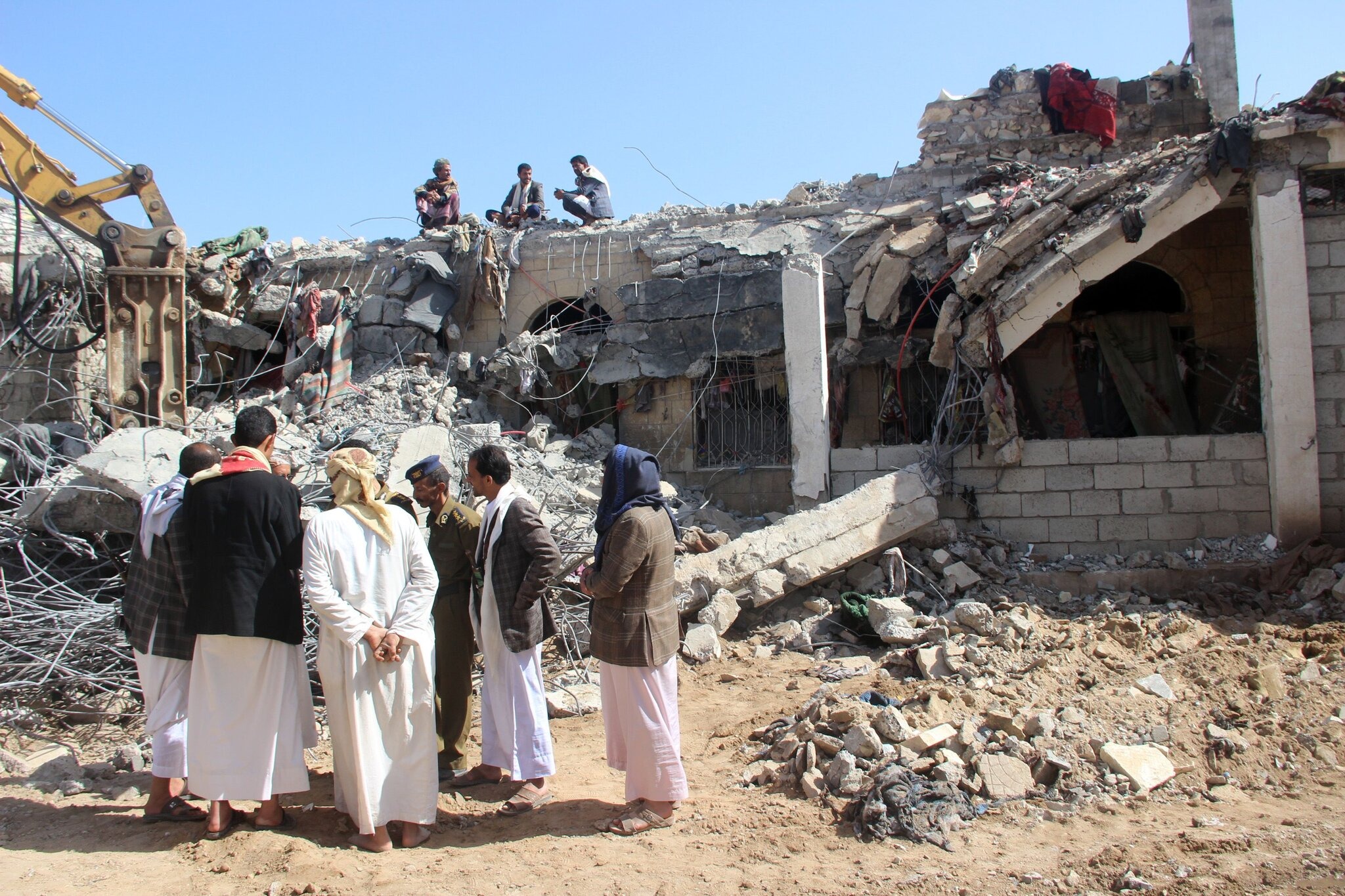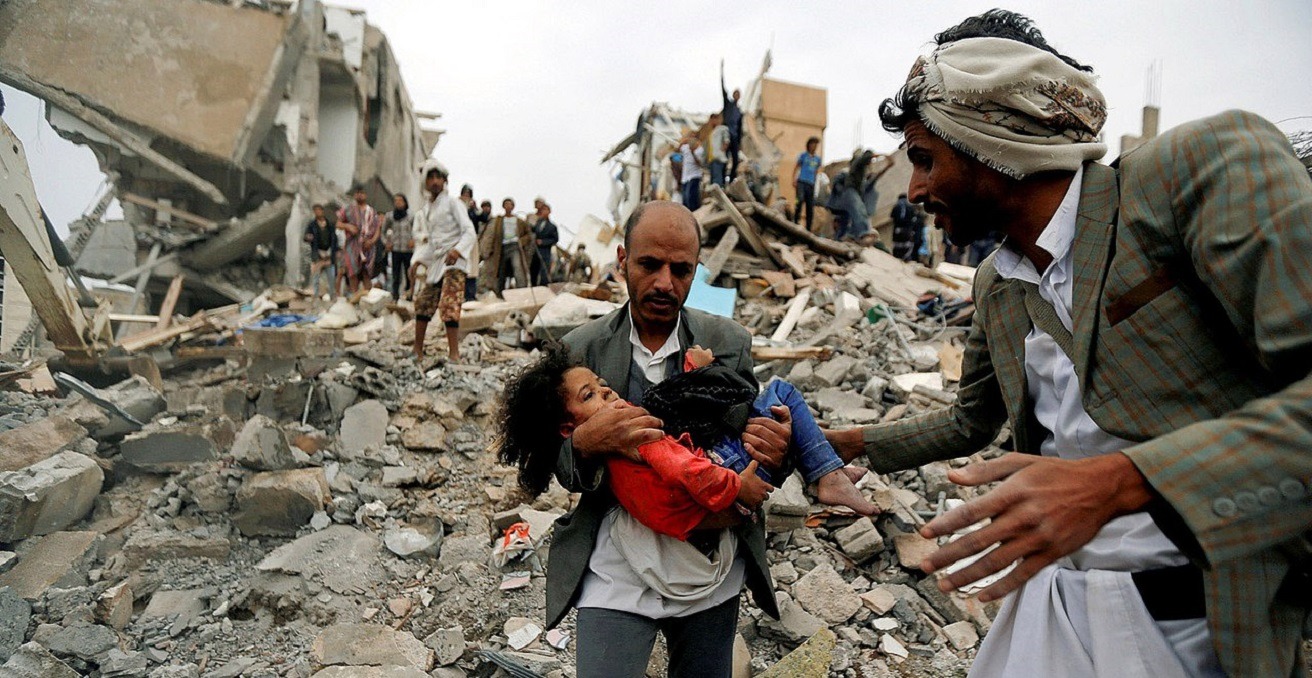For nearly two years, Yemen had seen a respite from the devastation of bombs until January 12, when a coalition led by the U.S. and U.K., backed by several other nations, launched airstrikes on 60 Houthi targets.
The objective was to deter Houthi attacks on commercial shipping in the Red Sea. However, despite the bombings, the Houthi assaults on merchant vessels in the Gulf of Aden and the southern Red Sea have persisted.
The origins of these attacks trace back to November 2023 when the Houthis responded to Israel’s military actions in Gaza by targeting vessels allegedly linked to Israel. Although the Houthis claim to target ships with Israeli ties, vessels unrelated to Israel have also been struck, including a Greek cargo ship bound for Iran.

Impact of the US-UK Bombing in Yemen (Credits: The New York Times)
The Biden administration views the Houthi actions as a significant threat to the global economy due to the strategic importance of the Bab al-Mandab strait.
To counter the Houthis, Operation Prosperity Guardian, a maritime protection force involving major NATO allies, was established. The administration reinstated the designation of the Houthis as “Specially Designated Global Terrorists.”
However, these punitive measures have not deterred the Houthi attacks. The group’s resilience and adaptability, honed during years of conflict with the Saudi-led coalition, have made them resistant to external pressure.
Moreover, the airstrikes have bolstered the Houthi narrative, portraying them as defenders of the Palestinian cause against Israeli aggression.
While the Houthi stance may be perceived as contradictory, with their blockade of Taizz conflicting with their condemnation of Israel’s siege of Gaza, many Yemenis view their actions as legitimate resistance.
The Red Sea crisis has enhanced the Houthi image regionally, aligning them with Iran’s “Axis of Resistance” and solidifying their role in the broader geopolitical landscape.
As the conflicts in Yemen and the Red Sea region continue, there are concerns about the impact on ongoing peace negotiations. Despite efforts to advance diplomacy under Omani mediation, the escalation of violence risks derailing progress and plunging Yemen back into civil war.
In conclusion, the Houthi attacks in the Red Sea are likely to persist as long as the conflict in Gaza continues. These developments underscore the interconnectedness of regional conflicts and the challenges of achieving peace in Yemen amidst escalating tensions.
























